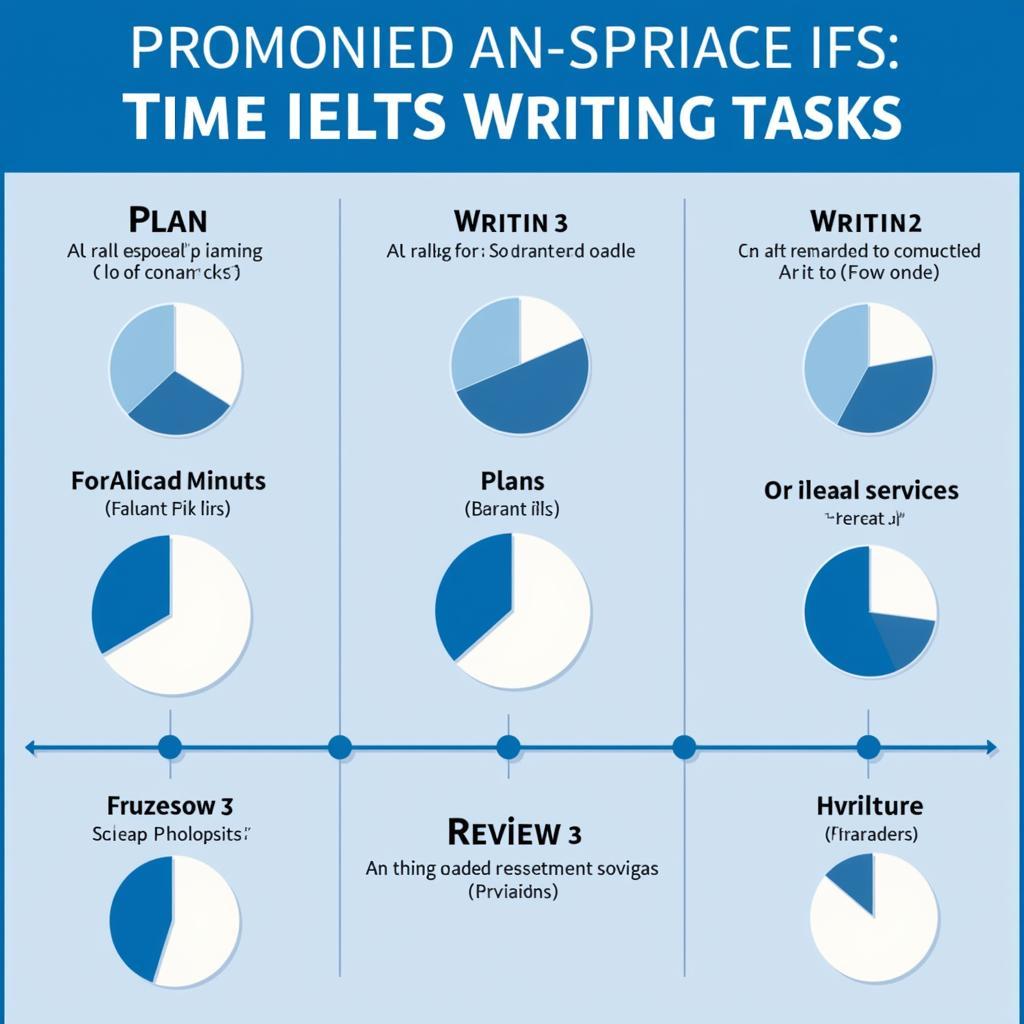Time management is one of the most challenging aspects of the IELTS Writing test. Many candidates struggle to complete their essays within the given time frame while maintaining quality and accuracy. To help you overcome this challenge, let’s explore proven strategies for writing efficiently under pressure.
Understanding Time Constraints in IELTS Writing
The IELTS Writing test demands quick thinking and efficient execution. How to manage IELTS writing task 2 under time constraints is crucial for achieving a high band score. You’ll need to complete Task 1 in 20 minutes and Task 2 in 40 minutes, making time management essential.

Breaking Down the Time Allocation
- Task 1 (20 minutes):
- 2-3 minutes for planning
- 15 minutes for writing
- 2-3 minutes for reviewing
- Task 2 (40 minutes):
- 5 minutes for planning
- 30 minutes for writing
- 5 minutes for reviewing
Pre-Writing Preparation Techniques
Effective preparation is key to writing quickly and accurately. How to practice IELTS writing under time constraints suggests these essential preparation steps:
- Quick outline creation
- Key point identification
- Topic sentence formulation
- Supporting evidence selection
Writing Speed Enhancement Strategies
To improve your writing speed while maintaining quality, consider these techniques:
- Use template sentences strategically
- Practice common sentence structures
- Develop a bank of transition phrases
- Master mastering subject-verb agreement for accuracy
Time-Saving Writing Techniques
- Write concisely and avoid redundancy
- Use clear topic sentences
- Focus on coherent paragraph development
- Apply how to write clear and concise IELTS writing task 2 essays
Practice Methods for Time Management
Regular practice under timed conditions is essential. How to practice IELTS writing with time limits recommends:
- Set strict time limits during practice
- Use a timer for each section
- Practice with official past papers
- Review and analyze timing issues
Common Time Management Pitfalls to Avoid
- Spending too long on planning
- Over-editing while writing
- Writing unnecessarily long introductions
- Neglecting the review phase
- Getting stuck on difficult vocabulary
Expert Tips for Writing Under Pressure
Dr. Sarah Thompson, IELTS examiner with 15 years of experience, suggests:
“Focus on expressing your ideas clearly rather than trying to use complex vocabulary. Simple, well-structured sentences are often more effective than complicated ones, especially under time pressure.”
Professor Michael Chen, IELTS preparation specialist, adds:
“The key to writing quickly is having a clear structure in mind before you start. Spend those few minutes planning wisely, and the writing will flow much more naturally.”
Quick Review Strategies
In the final minutes of your test:
- Check for basic grammar errors
- Verify task completion
- Review topic sentence alignment
- Ensure conclusion matches introduction
- Count words quickly
Frequently Asked Questions
Q: How can I write faster without losing accuracy?
A: Practice timed writing regularly and develop a bank of reliable sentence structures.
Q: What should I do if I run out of time?
A: Ensure you complete your essay with a brief conclusion rather than leaving it unfinished.
Q: Is it better to write more or focus on quality?
A: Quality always takes precedence over quantity, but aim to meet the minimum word count.
Q: Should I count words while writing?
A: Develop a sense of word count through practice rather than counting during the test.
Remember, mastering writing under time pressure is a skill that improves with consistent practice and the right strategies. Focus on developing efficient habits and maintaining composure during the test to achieve your desired band score.